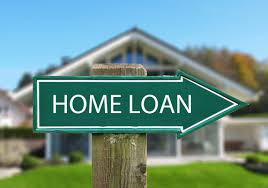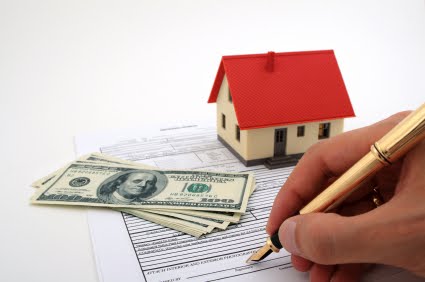Are you in the market to buy a home in Washington, DC? You may have heard of some of the many programs, lending options, and tax benefits that exist in the market today. To name a few: DC Opens Doors, Loan Programs for Teachers, and t he Down Payment Assistance Program. You may have even heard of first-time home buyer tax benefits in the past, but they have not been renewed or implemented for years.
he Down Payment Assistance Program. You may have even heard of first-time home buyer tax benefits in the past, but they have not been renewed or implemented for years.
As recently as 2011, there was a DC first-time home buyer tax credit in place that reduced the buyer's recordation tax by 50 percent. This credit saved many first-time home buyers thousands of dollars. There may be good news on the horizon for first-time buyers in DC. On October 6th, a few DC council members proposed a new first-time home buyer tax…
 Many buyers think that an FHA loan should only be used as a last resort. Indeed, more often than not conventional loans are the way to go over FHA (which stands for Federal Housing Administration) loans. However, if you’re only able to put 3% or 3.5% cash down on a property, an FHA loan could make more sense for you. Home prices in the DC area have skyrocketed in the last few years, and with that comes more difficulty on the part of buyers to put a greater percentage down on a property. What exactly are the pro’s and con’s of FHA loans? Well, that’s exactly what we’re here to tell you:
Many buyers think that an FHA loan should only be used as a last resort. Indeed, more often than not conventional loans are the way to go over FHA (which stands for Federal Housing Administration) loans. However, if you’re only able to put 3% or 3.5% cash down on a property, an FHA loan could make more sense for you. Home prices in the DC area have skyrocketed in the last few years, and with that comes more difficulty on the part of buyers to put a greater percentage down on a property. What exactly are the pro’s and con’s of FHA loans? Well, that’s exactly what we’re here to tell you:
 Are you a teacher in Washington, DC? We understand that buying property can seem daunting for a number of reasons, including cost, but there are a few loan programs that can help. One is the Employer-Assisted Housing Program, or EAHP. This helps full-time DC Government employees become first-time homeowners within the District. You must have a good credit rating and enough income to afford a mortgage loan. If you are deemed eligible, you will receive matching closing cost funds up to $1,500 ($500 for each $2,500 saved by an employee) and a deferred second trust loan up to $10,000. Applicants are allowed to select a first trust lender of their choice. The maximum loan amount for the EAHP is $625,500. A second program that we recommend is the Home Purchase…
Are you a teacher in Washington, DC? We understand that buying property can seem daunting for a number of reasons, including cost, but there are a few loan programs that can help. One is the Employer-Assisted Housing Program, or EAHP. This helps full-time DC Government employees become first-time homeowners within the District. You must have a good credit rating and enough income to afford a mortgage loan. If you are deemed eligible, you will receive matching closing cost funds up to $1,500 ($500 for each $2,500 saved by an employee) and a deferred second trust loan up to $10,000. Applicants are allowed to select a first trust lender of their choice. The maximum loan amount for the EAHP is $625,500. A second program that we recommend is the Home Purchase…  Earnest money deposits (EMD’s) are an often-discussed and misunderstood part of real estate transactions. Also known as an escrow deposit, an earnest money deposit shows a buyer’s interest in a property when they make an offer. The potential buyer will write a check either to their real estate agent’s brokerage or to a title company of their choice. The amount of the earnest money deposit is up to the buyer, but it is usually 2.5%-3% of the purchase price. For example, Capital Park Realty recently closed on two properties: one with a purchase price of $585,000 and one with a price of $365,000. For both, the earnest money deposit was $20,000, or 3.4% for the $585,000 property and 5.5% for the $365,000 property. As you can see, it is not uncommon for the…
Earnest money deposits (EMD’s) are an often-discussed and misunderstood part of real estate transactions. Also known as an escrow deposit, an earnest money deposit shows a buyer’s interest in a property when they make an offer. The potential buyer will write a check either to their real estate agent’s brokerage or to a title company of their choice. The amount of the earnest money deposit is up to the buyer, but it is usually 2.5%-3% of the purchase price. For example, Capital Park Realty recently closed on two properties: one with a purchase price of $585,000 and one with a price of $365,000. For both, the earnest money deposit was $20,000, or 3.4% for the $585,000 property and 5.5% for the $365,000 property. As you can see, it is not uncommon for the… Title insurance is one of the least understood components of the real estate process. What exactly does it do, you may ask? To put it simply, title insurance protects lenders and owners against unforeseen problems with titles and mortgage liens. There can be hidden defects in a title that not even the most experience settlement agent will catch. A lender’s policy is required by every public mortgage lender and protects for the amount of the loan. This does not cover buyers, who must purchase their own policy to be covered.
Title insurance is one of the least understood components of the real estate process. What exactly does it do, you may ask? To put it simply, title insurance protects lenders and owners against unforeseen problems with titles and mortgage liens. There can be hidden defects in a title that not even the most experience settlement agent will catch. A lender’s policy is required by every public mortgage lender and protects for the amount of the loan. This does not cover buyers, who must purchase their own policy to be covered.